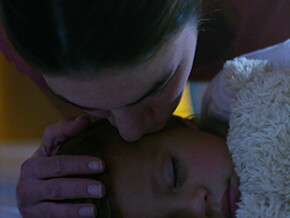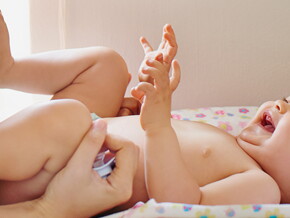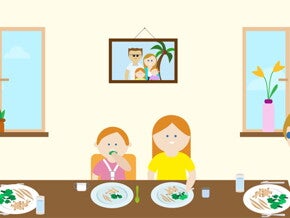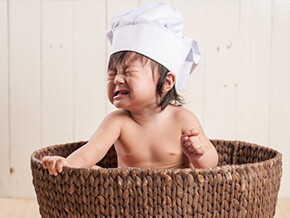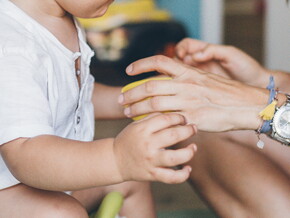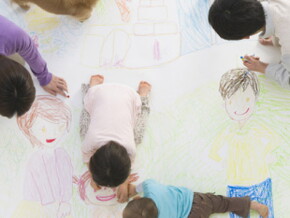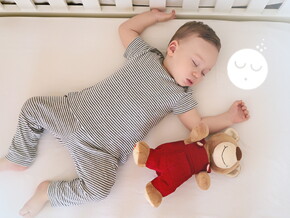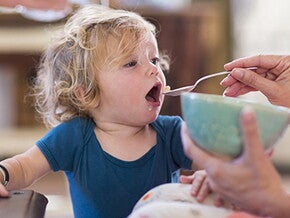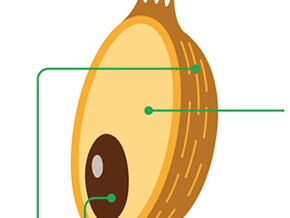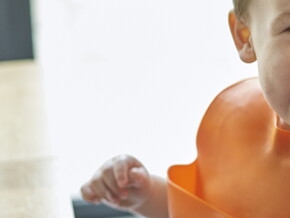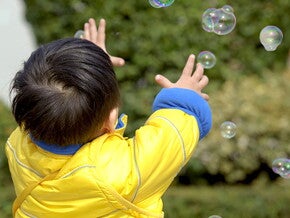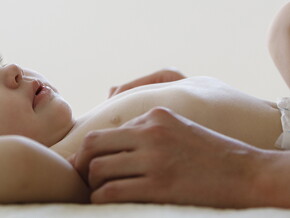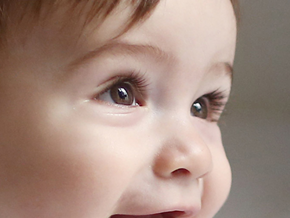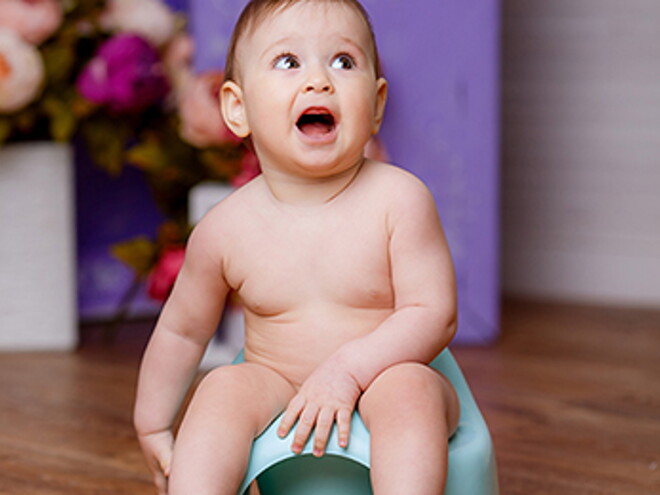
My child will soon be starting school so it is therefore the ideal time to teach them to use the potty. What can I do to help them?
Toilet training is another step towards becoming independent and "growing up". The parents' burden is lessened (no more nappy changing) as is their budget. However, parents' wishes may differ from external forces! Perhaps your mother reminds you that "at their age you were already dry", the school teacher stresses that "we only accept nappy-free children" – the deadline is somewhat worrying! To help you not make this stage a stressful obsession, here is some useful advice…
Are babies dry at a specific age?
There is no cut-off age. Your little one is ready when, physiologically, they know how to control their sphincters (retention/expulsion) and when, psychologically, they agree to giving up their status as baby. Not all children are ready at the same time and are generally dry at night at between 15 and 36 months. Children are generally dry in the day at 28 months.
How will I know if they are ready to use the potty?
Strong signs to suggest that they are ready include being able to sit down and stand up again unassisted, being able to kick a ball, being able to climb stairs alone, imitating adults' behaviour, being able to eat on their own and claiming a certain level of independence.
Other significant signs of wanting to move on include taking an interest in the potty and touching their nappy when it is soiled.
If I use the potty too early, can this prevent my child from learning how to toilet train properly?
It is true that you should not force a child to develop faster than they are able to. Pressuring them to use the potty will only delay learning.
The right moment is therefore when your child decides they are ready. In the meantime, you can explain how to use the potty and what will be expected of them.
Does putting children on the potty at regular times help?
A routine can be implemented according to set times (on waking, before or after the afternoon sleep etc.). It is also useful to leave the potty out in the bathroom or toilet to enable the child to get used to seeing it. You can sit with them initially to reassure them, while explaining that a bowel movement is natural and explaining where it goes next.
Should children be left on the potty until they have done what is expected of them?
Making this an obligation will only heighten a child's fear of not matching up to your demands and not being worthy of your love, at the expense of their self-confidence. If after a few minutes nothing happens, you should congratulate your child for having tried before trying again a few hours later or the next day.
What should I do if my child soils their pants?
Toilet training is never accident-free! You should reassure your child on their ability to learn to toilet train and you should ask them to not wait until the last minute to ask to go to the toilet.
If my child does not manage to go on the potty should I suggest they use the toilet?
This high perched, worrying "throne" is generally the last stage in toilet training and means that your child has effectively managed to use the potty.
They regress, my baby was dry but has started wetting the bed again?
The arrival of a little brother or a little sister, among other reasons, may temporarily cause older children to regress to the status of baby. This does not however last long. A little patience and everything should fall back into place.
My baby is dry in the daytime. How long will it be before they are also dry at night?
This varies and is without reason. It may take just a few days, a few weeks or months… Sometimes children are dry at night first! The most important thing is not to pressure them. Children have their own pace, and as parents you will need to adapt to it!
Books can also help introduce the idea of potty training:
- "Zoo Poo : A first toilet training book" by Richard Morgan, Barron's Educational Series.
- "Potty Training in One Week" by Gina Ford, Vermilion.
- "Early start potty training" by Linda Sonna , McGraw-Hill Contemporary.


